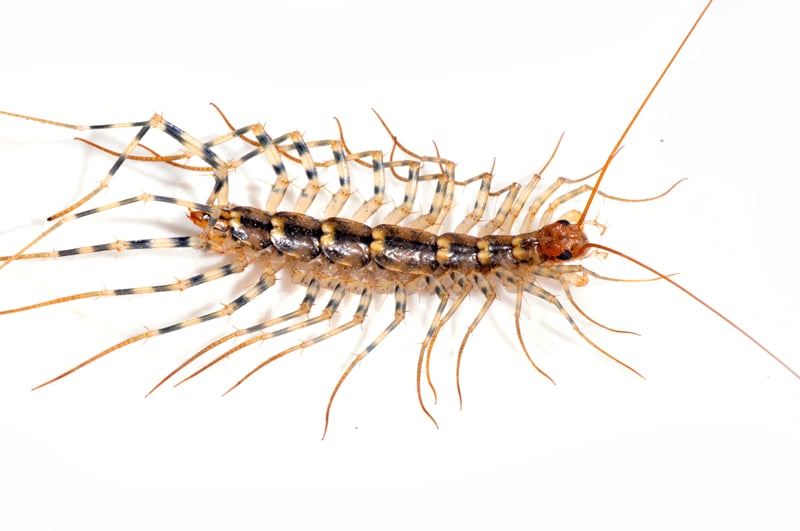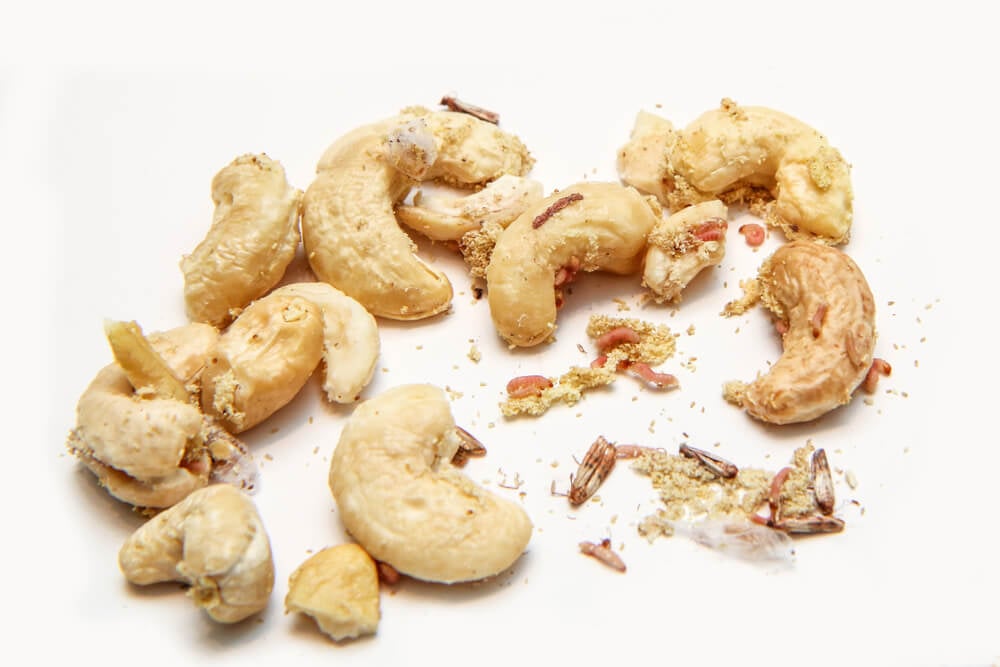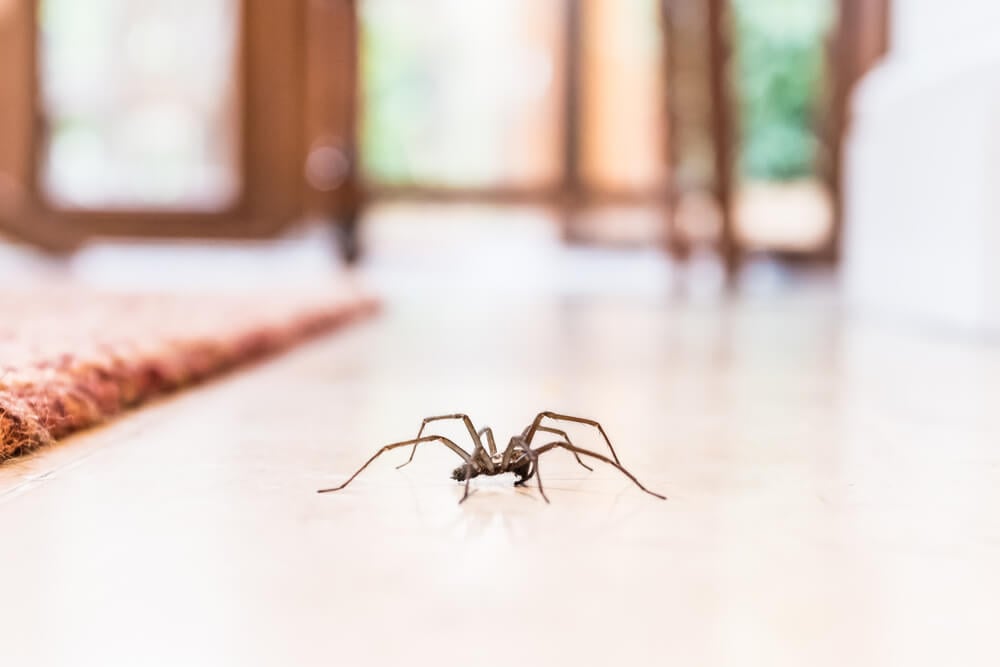The first time seeing a centipede in your house can be an alarming experience. A picture of a house centipede can probably be found next to “creepy” in the dictionary. To make sure you don’t have to deal with these prehistoric-looking pests for long, we’ve put together a guide on how to never have centipedes in your home again.
How to Never Have Centipedes in Your House
1.) Clean Up Food Sources (and Pests)
Here’s the bad news: if you have centipedes in your house, it's probably because you have other pest infestations. This is because centipedes are omnivorous predators and they feed on nearly any arthropod smaller than them (including roaches, silverfish, spiders, flies, and more).
Depriving these bugs of their food sources is one of the best ways to keep them out of your home. Centipedes hunt for food in moist, dark, and warm locations like your basement and attic. Starting in these spots, look for signs of other pest infestations.
- Look for ways pests could have entered your home, like gaps around windows, worn-down insulation, or cracked baseboard.
- Seal any gaps with caulk
- Replace weatherstriping around windows.
- Clean up around corners,under boxes and bags, and anywhere you find signs of pest activity.
2.) Take Away Their Shelter
House centipedes are nocturnal hunters and foragers. During the day, they rest in dark and damp shelters near a source of food. Unfortunately, their climbing abilities and small bodies make any opening or structure large enough for a resting space. This is also where females will deposit their eggs, which is why it’s important to address infestations quickly.
A few places that centipedes like to hunker down include:
- Wood piles
- Concrete slabs
- Cardboard boxes
- Wall openings
- Drains
- Crawl spaces
Remove their shelters by:
- Storing firewood away from the home
- Patching holes in insulation and concrete
- Organizing boxes
- Installing water traps in floor drains
- Keeping crawl spaces and attics clean

3.) Moisture Control
Centipedes require a highly humid environment to stay active. If you have centipedes in your home, it’s probably partially due to the fact that certain areas of your home are producing too much moisture.
Excess humidity happens for a lot of reasons:
- Drafts in your home can suck in damp, outdoor air while pushing out dry, indoor air. Find drafts by feeling for sudden dips in temperature, especially in your basement or attic.
- Plumbing leaks produce surprising amounts of moisture. Plumbing leaks are considerably more common than you might think.
- Unfinished areas in your home may have natural low spots that puddle after rain or snow. Look for puddling in the unfinished parts of your home after rain or snow.
If you can’t find the problem, try a dehumidifier, or replace old windows and doors. House centipedes can’t permanently inhabit dry spaces, so reducing humidity is a great way to keep them out.
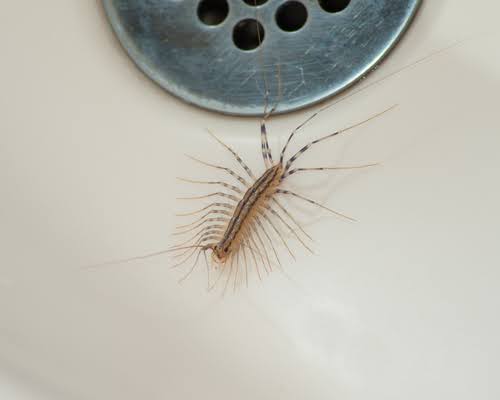
4.) Seal Access Points
Like virtually every type of pest, centipedes are opportunists. They enter your home simply because they can. They’ll follow moisture, humidity, and warm air that they can feel from outside. Once they reach the source of the attractive element, they find a gap large enough for them to squeeze through.
Look for these openings around windows (particularly older basement windows). Worn down weatherstriping around doors may provide access to centipedes. The gaps around utility lies or baseboard cracks might be large enough to let them in.
Sealing off access points like these will help keep centipedes and their food sources out all at once. House centipedes might seem a little (or a lot) scarier, but really they’re just another pest. Following these pest prevention tips will safeguard your home against centipedes and all kinds of other creepy crawlies at the same time.
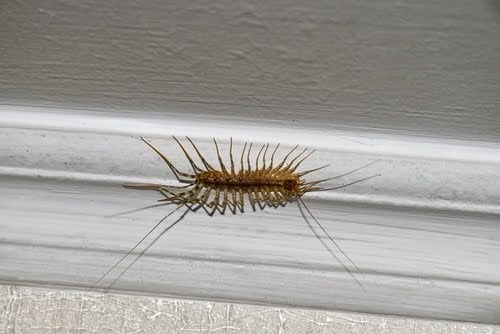
Keep Centipedes Out with Plunkett’s Pest Control
Preventing centipedes from entering your property can be difficult, but is not impossible. If you end up needing help kicking these leggy pests out, contact Plunkett’s. Our specialists are ready to control, prevent, and wipe out centipedes.

